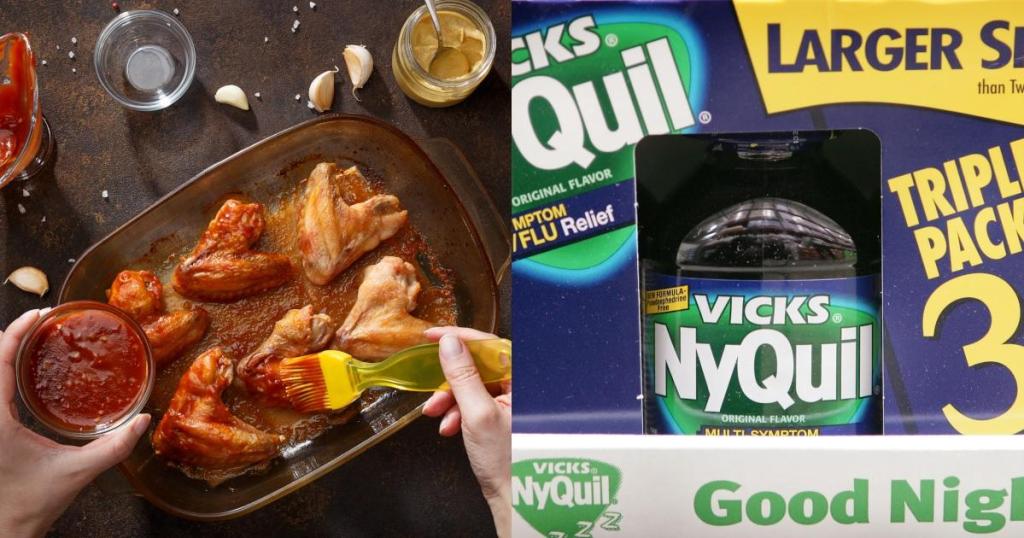The U.S. Food and Drug Administration issued a surprising warning on Tuesday: Do not cook chicken in NyQuil. The warning was part of a message asking Americans to be mindful of crazy social media dares and TikTok challenges that children might do just for social media clout.
While the idea of cooking chicken with NyQuil or other over-the-counter cough and cold medication sounds silly, the FDA notes that it is also very unsafe. “Even if you don’t eat the chicken, inhaling the medication’s vapors while cooking could cause high levels of the drugs to enter your body,” the agency warned. “It could also hurt your lungs. Put simply: Someone could take a dangerously high amount of the cough and cold medicine without even realizing it.”
Videos by PopCulture.com
The agency also drew attention to the dangerous “Benadryl Challenge,” which was popular during the summer of 2020. This trend involved young TikTok users taking large doses of Benadryl and similar over-the-counter medications to induce hallucinations. Benadryl maker Johnson & Johnson issued a warning in September 2020 after an Oklahoma City teenager reportedly died after attempting it. The challenge was also linked to three Fort Worth, Texas teens being rushed to the hospital in May 2020. The FDA noted that taking a high dosage of Benadryl could lead to “serious heart problems, seizures, coma, or even death.”
The FDA’s message this week was prompted by the growth of social media challenges involving improper use of over-the-counter medication that targets young people. “Nonprescription (also called over-the-counter or OTC) drugs are readily available in many homes, making these challenges even more risky,” the FDA noted. “OTC drugs can pose significant risks if they’re misused or abused.”
Teenagers are more susceptible to social media challenges because their brains are still developing, notes the American Academy of Pediatrics. “The part of the brain that handles rational thought, the prefontal cortex, is not fully developed until the mid-20s,” the AAP notes. “This means teens are naturally more impulsive and likely to act before thinking through all of the ramifications.”
The FDA advised parents to keep OTC and prescription drugs away from children and locked up to prevent an accidental overdose. Parents should also discuss the dangers of misusing drugs and remind them that social media trends can lead to real-life consequences. It is also important to remind them that you can overdose on OTC medication, just as you can with prescription medication. If parents see symptoms of an overdose, they should call 911 or seek immediate medical attention. Parents can also contact poison control at 1-800-222-1222.









